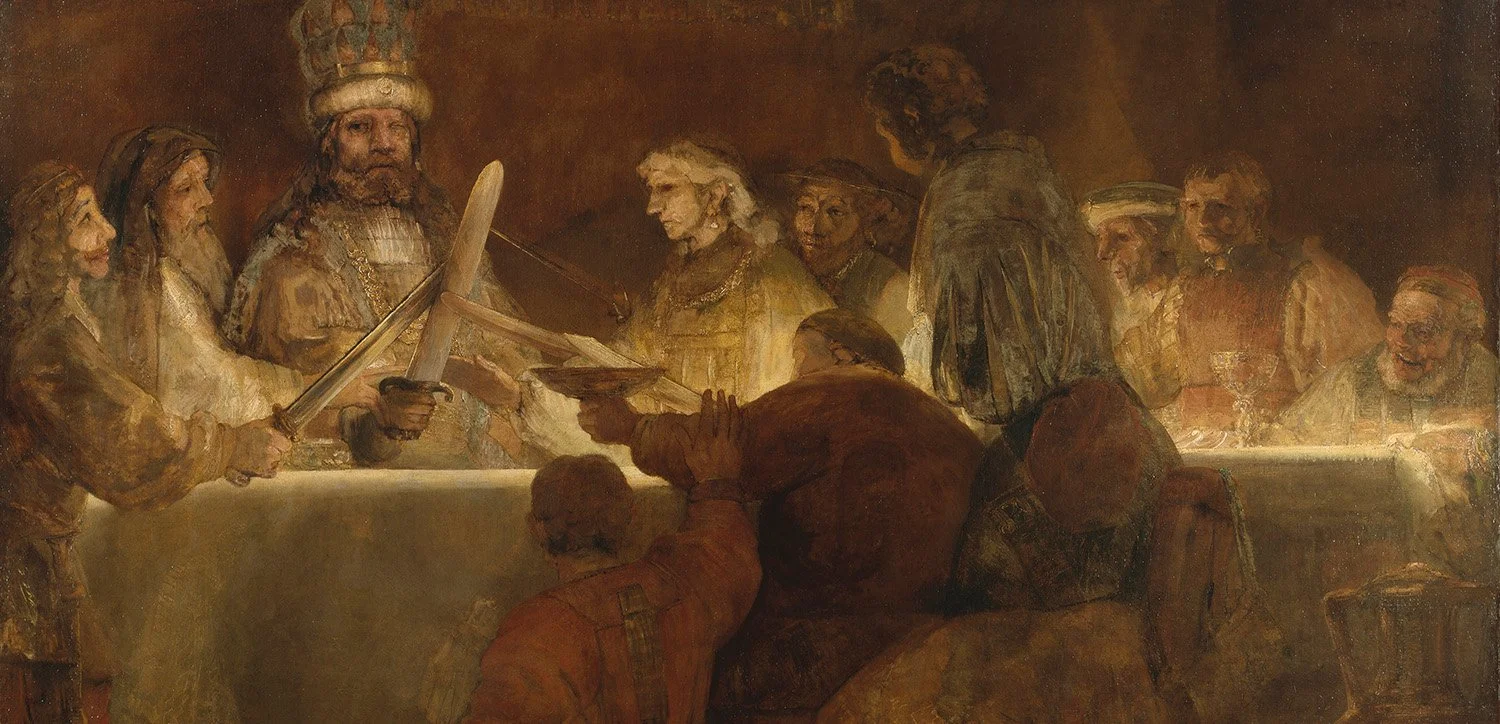Shakespeare, Rome, and the American Republic
Lecture given at the University of Ohio. Lecture
Read More
Reality Czech: Tom Stoppard Discovers Shakespeare behind the Iron Curtain
Tom Stoppard's Dogg's Hamlet, Cahoot's Macbeth offers fresh evidence of the universality of Shakespeare's genius. Essay
Read More
William Shakespeare and the Roots of Western Civilization
If Shakespeare's plays constitute some of the great monuments of Western civilization, one reason is that they are deeply rooted in its grand traditions. Lecture
Read More
Libertarian Literary and Media Criticism: Essays in Memory of Paul A. Cantor
Essays in honor of Paul Cantor—this volume applies libertarian philosophy and free-market economic theory to both literature and media, from early modern drama to novels to comic books, cinema, and television series. Book
Read More
"A Soldier and Afeard": Macbeth and The Gospelling of Scotland
Paul Cantor's groundbreaking analysis of Shakespeare's tragedy Macbeth. Essay
Read More
Pop Culture & Tragic Heroes
Titus & Paul Cantor, America's eminent Shakespearian, talk movies, TV shows, & tragedy. From Godfather to Breaking Bad, from Aristotle to Mark Twain, we talk about how to understand pop culture & how to understand America's great love affair with tragic heroes (now called anti-heroes). Podcast
Read More
Deadwood
Titus & Paul Cantor talk about David Milch's most famous achievement, Deadwood--the movie & the TV show both: A lawless, but orderly vision of America. An America with commerce but without religion, with freedom but without equality--what kind of community & what kind of justice is possible in such a situation? Podcast
Read More
The Economics of RoboCop
In this EconPop interview, Cantor discuses 1987 action classic, RoboCop. Subjects include innovation, public goods, and corporate skullduggery. Podcast
Read More
Frankenstein Book & Films
Titus & Paul Cantor discuss Frankenstein on its 200th an.--the novel, its history on the stage in the 19th c., & various movie adaptations in the 20th c. We talk about the genius of Mary Shelley & the rarity of a new myth being created by a single person under the historical spotlight! We talk about Enlightenment, Romantic poetry, & how new technologies of communication provoke nostalgic storytelling. Podcast
Read More
Myths of Creation Introduction
The introductory lecture in Prof. Cantor’s course “Myths of Creation.” It explains the importance of creation myths in Western civilization; it lays out the classical and biblical traditions of creation; and outlines the readings in the course and its focus on the Romantic creation myth, which seeks to overturn in gnostic fashion the values of traditional creation myths. Lecture
Read More
Hesiod & The Bible
The ancient Greek accounts of the creation differ greatly from the one in the Bible. In his Theogony, Hesiod produces a polytheistic account of the origin of the world. Lecture
Read More
Paradise Lost
Milton’s Paradise Lost as an attempt to synthesize the Biblical and classical accounts of the Creation. Lecture
Read More
Wagner's Ring Cycle
A study of Wagner’s Ring Cycle as a Romantic creation myth, analyzing how it tells the story of an initial harmony with nature, a fall from that unity into the power struggles of civilization, and Wagner’s hope for an apocalypse that would allow for the triumph of love in the world. Lecture
Read More
Nietzsche’s Thus Spoke Zarathustra
Nietzsche does not offer a myth of creation, but his new myth of the Eternal Recurrence is meant to provide a new basis for human creativity. Lecture
Read More
The Poetry of William Butler Yeats
This lecture analyzes Yeats as the poet of a Post-Nietzschean world, having rejected any vision of eternity and embraced human life as a series of historical cycles of creation and destruction; the lecture looks at the opposition between art and life in Yeats’s works and shows how he tries—but ultimately fails—to transcend it. Lecture
Read More
Samuel Beckett's Trilogy
Samuel Beckett’s Trilogy (Molloy, Malone Dies, and The Unnamable) treated as a gnostic creation myth, in which what is created is the book itself, by a mysterious god or gods, who, like the Romantic demiurges, cannot create a decent world for their creatures. Accepting Nietzsche’s idea of the Death of God, Beckett creates a story in which the novelist dies midway, leaving his characters to fend for themselves in the absurd world he leaves behind him. Lecture
Read More
The Poetry of Derek Walcott
Derek Walcott is the great poet of cultural hybridity. He had a complex cultural heritage. Lecture
Read More
King Lear: The Tragic Disjunction of Wisdom and Power
Many critics regard King Lear as Shakespeare’s greatest play and his most tragic. Essay
Read More
Nature and Convention in King Lear
Paul Cantor analyzes the natural versus conventional world of politics in Shakespeare's King Lear. Essay
Read More
Against Chivalry
They had more in common than just the sheer greatness of their literary achievements. Cervantes did not know Shakespeare's work, but Shakespeare almost certainly knew Cervantes's most famous work, Don Quixote. Essay
Read More





















